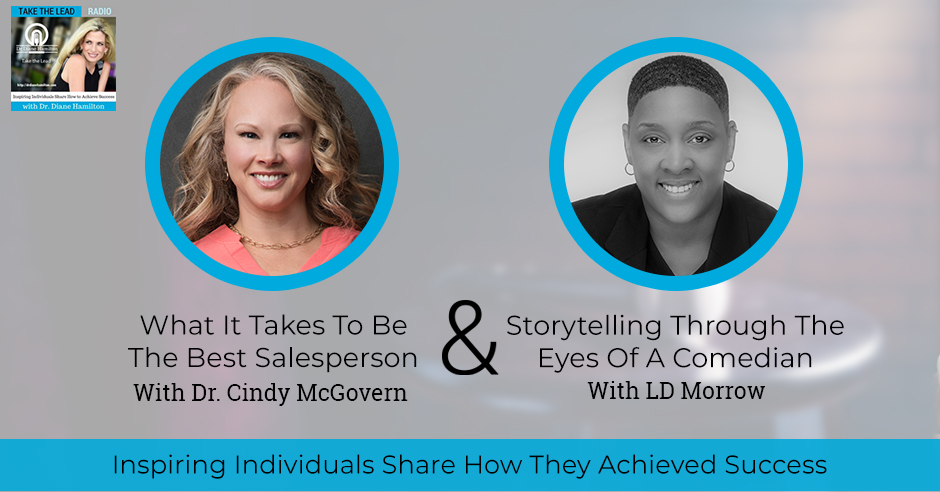
We have Dr. Cindy McGovern and L.D. Morrow here. Dr. Cindy is the First Lady of Sales. She’s an author, speaker and consultant. She knows everything about sales and how you can use it even if you’re not in sales which is fascinating. L.D. is also Lolita in other words. She is an entertainment media professional, speaker and author. We talk about some of the things that she’s doing with not only creating films, but she has a new book. She’s getting insight from bartenders of how to extrapolate what they do into the real world. We’re going to find out how to use sales and bartending to do things other than sales and bartending.
—
Watch the episode here
Listen to the podcast here
What It Takes To Be The Best Salesperson With Cindy Mcgovern
I am here with the First Lady of Sales, Dr. Cindy McGovern. She’s also known as Dr. Cindy. She’s an expert in the area of sales, interpersonal communication, leadership and management. She’s earned her reputation by helping hundreds of companies to grow their business. She’s also the author of the Wall Street Journal bestseller Every Job is a Sales Job: How to Use the Art of Selling to Win at Work. It’s nice to have you here, Cindy.
Thank you so much. It is a pleasure to be here.
We’re in a group together of women authors. We’ve known each other through other means but you are the CEO of Orange Leaf Consulting. You coach and guide companies. You do all kinds of things and you have a doctorate in organizational communication. You and I have quite a bit in common.
We both survived the dissertation.
We did. It wasn’t that fun. What was your topic?
My topic was on how nonverbal communication creates ethical standards in the workplace.
I wrote about how emotional intelligence impacts sales. The sales thing is something I find fascinating and I often share embarrassing sales stories of how I humiliated myself because in sales, you can put your foot in your mouth. It’s such an important job. I know a lot of people get a little annoyed with salespeople because they make more money than some other jobs. You earned it. That’s a tough job. How did you get into sales and can you give a little background?

I didn’t want to be in sales. I was a college professor. After my dissertation and after I finished my PhD, I was teaching interpersonal communication and public speaking, anything in that vein of leadership. I started consulting in the summers as many college professors do, and then I started doing some corporate training. Fast forward, I realized I liked teaching the adult population, nothing against 18 to 22-year-olds. I wanted to work more in the workspace. I found a job doing consulting in that. Six months into that, I was put into a sales role and I flipped out. I was like, “There’s no way I can do this. I am not a salesperson.” I have this idea of sales being pushy and manipulative, like a used car sales and the stereotypical that you see in the media. I thought, “I’m going to get fired. I cannot do this job.” Go forward a month or two, I started realizing sales is listening and helping. Through some self-exploration, reading and anything I could get my hands on, I started figuring out I had been selling my entire life. I just didn’t call it that. That’s what led me to write this book. I was like, “If I can do this, other people can do this.” That was the journey and the pivot into speaking, doing consulting and helping non-salespeople to be able to sell.
Everything is sales. My husband is a medical doctor and I am working for AstraZeneca for twenty years. I was in pharmaceuticals and fifteen of those are in sales. Doctors are salespeople. People don’t look at it that way. If you think about it, everybody like lawyers are selling in some respects. We can learn so much from sales. I can’t tell you how much foundational help that gave me in every other job I ever had. There is a negative image. You see that car salesman as you put it, but the last car salesman I had was great. I was wanting to write down notes. I was like, “This guy’s doing a rockstar job.” Do you criticize in your mind when you buy things?
There’s not that many that use those tactics. We’re sold to all day every day. When you go to the grocery store and they ask you to donate $1 to whatever charity, that’s a sales conversation. It’s very few that use those manipulative tactics. Unfortunately, those are the ones that are amplified in movies and television. Those are the ones that we stick with. I call it the X factor. We all have the X factor of sales. We think of many that we’ve had successful sales conversations with and they’re all around us and we can totally learn from those.
Sales changed a lot since I’ve been in it. It used to be all extroverts and all individuals. You then start getting more introverts because they’re better listeners, then you start getting more teams and that was challenging. Do you have to be outgoing and talkative to be a great salesperson?
I don’t think so. People think I’m naturally outgoing so that’s why I was good at sales. That was one of the hardest parts because I felt I had to fill the silence or I felt I had to perform in a way. What I realized is the best salespeople are the best listeners. That was the skillset I worked on. I talk about this in my book, the steps of it and all of this. Listening is where you establish trust with the other person and that’s where the sale happens. I firmly believe that introverts are some of the best salespeople simply because they are naturally good observers and listeners.
It’s important to do that. I’ve had a company teach me out of my listening skills. I found that even in pharmaceuticals, they put so much pressure on you to get your presentation. They call it detail the doctors. You go, “You’ve got five seconds to get this in or he’s going to walk away.” You spit out whatever’s in your mouth and say what you want to say. You don’t think anything about asking questions or finding out their pain points because you’re stressed. You talked about steps to listening. What kind of steps are there?
[bctt tweet=”The best salespeople are the best listeners.” via=”no”]There are a couple of things. The first thing is you have to have a plan for what you want. That’s something we learn as salespeople. You have a pipeline, a plan, how many appointments and this or that. It’s looking for the right opportunity. That’s also where those best listeners see that moment where it’s the time to ask the question. It’s the time to plant a little seed and say, “We do this.” It gets to the listening piece. The listening is all about asking the right questions and making that other person feel comfortable enough to guide you through so that you can discover their pain points. You have to have a little bit of permissiveness within that conversation so that you can get them to the point where they feel comfortable telling you what they need.
In pharmaceutical sales, I have many friends that have done that over the years. I’ve worked with a few. You are so focused on the product knowledge that you forget to listen. If you go in with a couple of questions, you’ll get a chance to drop all those knowledge bombs. You’ll find those in the course of the conversation. When you said you relearn the listening thing, I went through that too because I had to learn how to ask pointed questions to be able to get that information out of them.
They should have trained us a little better. They may do that now because this was 100 years ago. I left a sales presentation thinking I did such a great job this one time. I got all three products in it and I got on an elevator to get some samples for this guy. A guy gets on the elevator with me. Since I’m an extrovert, I can’t go two floors without talking. I said, “Do you work in the building?” It turned out that he was that guy I had sold. I didn’t even look at him. He looks at me mortified, “You just detailed me.” If he hadn’t gotten the elevator, I would’ve thought I did the best job ever. We have to listen and ask questions. I didn’t ask anything and that’s how I was trained. That’s my defense, if there is any defense for that. We don’t know what the right questions are sometimes. That ties into my research in curiosity. I love to ask questions. How do we know the right questions?
It begins with figuring out what your plan is. Is there a plan to try to uncover their biggest need? That’s my goal in any sales conversation. It’s not to sell them anything. When I’m selling to a client, I want to understand what they need. If I’m a fit, that’s great. If I’m not a fit, that’s okay too. I do my research and figure out what’s going on in their company. I look at the news and what’s going on. I then sit there and go, “If I were in their shoes, what are the things that I feel would be my biggest struggle from getting to the next level?” The first question I ask them is about their own goals. I coached many sales teams and I’ll ask them, “In your last three prospect appointments, what were the prospect’s goals?” They can’t tell me. It’s because we get focused on, “I have to give you this information and tell you how amazing we are.”
If you just take a step back and go like, “Tell me where you want to go. Tell me what’s gone well for you. Tell me what’s got in your way,” it opens the dialogue to a totally different path. It’s about letting your curiosity lead you. I know that’s a big thing with you too, but the old ABC, Always Be Closing, I shifted it and it’s Always Be Curious. If you are naturally curious, you will ask those questions if you prepare for it and know that your goal is to figure out what they need and see if there’s a fit. Even if there’s not, you’ll have a resource for them. That will drive the way you ask the questions. It’s open-ended. It’s not a right or wrong. People say, “What’s the right question to ask?” It’s completely different for every client in every moment in every situation. It’s listening to what they’re saying and then figuring out where you need to take the dialogue to understand what they need.
That’s typical with what I do in this show. A lot of people want to just go down a fixed list. Sometimes I ask people to send me some questions that they might want to go in so I’ll have a direction of what they like. If you have a conversation and you go down a fixed set of questions, it doesn’t fit you. That’s not interesting at all. That’s what they teach you sometimes in sales is to memorize a script. It’s important to be prepared. A lot of it comes in with your observations. Going back to the curiosity thing, my boss in one of my jobs in pharmaceuticals, he was so observant. He’d walk into a room and he immediately knew what school the guy went to, what sport he was into, what her kids look like, whatever it was. That’s a real skill that a lot of people overlook. That’s a simple thing to do. You can do that in real life. A lot of this stuff we can use in real life. This isn’t meant for salespeople.

Not at all. That’s the mission that I’m on. I want to take sales out of the boardroom and put it in the classroom. It’s not only a business skill, it’s a life skill. I have three degrees in communication. I went all the way through the PhD and I was never taught the skills that I’ve put in this book. I’m like, “How did I miss this? I had a great education and amazing professors.” It’s far outside. That was in business school and it shouldn’t. It should be something that we are all taught because every interaction with another human is a sales transaction in my opinion. You’re selling yourself. You’re selling your ideas to your colleagues and you’re selling your kids on eating their vegetables. These are all sales and we take it outside of that and go, “No, that’s not sales. Its sales when you have a plan and you’ve pitched somebody something.” I disagree. It truly is in every interaction you’re selling the other person something.
As you say that, I believe that the future of education, when they start to have certificate programs and get rid of formal education and stuff, you’re going to lose some of this glue that holds it all together. The soft skills, the sales, the critical thinking, I like that aspect of what we can learn. I hope that we don’t lose that in future generations because there’s so much to this that people could have more well-rounded. As you said, you didn’t even get it in the best of programs. It’s hard for people to get this. In your book, there’s a lot that you go into and it’s for non-salespeople too. You’re talking about an unofficial sale. What’s an unofficial sale?
It’s the unplanned moment and those are the ones that are the most important. Once you have that plan and you’re looking for those opportunities, that unofficial sale is the one that came out of nowhere that you have a chance to make. A lot of the stuff that’s coming out of the book is not true business sales. The success stories we’re getting are people using this in their real life. I got one where somebody messaged me randomly, “I got a blanket on an airplane that was only reserved for first-class. I had your book in the back of my head when I asked for a blanket. They said it was only in first class. I was way back in coach. I convinced the girl to give it to me.” That silliest little thing but it was a sales conversation. That’s one of those unofficial moments where this wasn’t planned, wasn’t furthering her career. It was the fact that she wanted something and she used that skill set to get it. That’s a huge opportunity for all of us.
That’s such a great example because there’s so much that we can get. It also ties into what you talk about in terms of gratitude. If you get it, you’re thankful and you show respect for people who give you a little bit extra, then you even get more and they get more from it.
They want to do more. Think about the things that we do for people when they show us appreciation. That feels so good and then you want to help other people. Hopefully, they’re paying it forward as well. The gratitude piece is one of the most important parts of my sales process. That’s what’s helped me the most. I do tend to come from a place of abundance, not a place of scarcity. I am grateful that I get to wake up every morning and do this. That’s a great gig, getting up and helping people every day. I haven’t forgotten about the people that have helped me along the way. I tried to stay in touch with them and I try to let them know what’s going on.
That little string to the past and making sure people know has helped me build my network. That’s what people forget. It’s following up and being grateful. That’s where you’re building those people that want to help you and want to continue to carry your message and story. The Authoress group is a perfect example of that. We support one another immensely and it’s incredible that most of us haven’t even met in person but we’re a tribe of women helping each other. You feel the gratitude when the notes go out. That’s hugely powerful and it makes us want to continue to help each other.
[bctt tweet=”Every interaction is a transaction where you’re trying to sell the other person something. ” via=”no”]What you’re talking about is a group of women authors who we’ve joined together with the Google group type of thing. We share what helps us and what we’ve found. It’s a great community. As you were talking about how your sales have helped you build your network, it also helps you sell your books, get your speaking engagements and whatever it is that you’re doing. Many people who write books follow this show. They’re trying to build their network, sell their books and do many things that involve sales, but they don’t see themselves as salespeople. They see themselves as authors or speakers. They want somebody else. They want to hire a PR firm instead and sometimes that’s what we do which works out fine because we might not have certain sales skills. How do you know when you hire a PR firm and when you do it yourself?
I firmly believe that nobody’s going to tell your story as best as you will. I’ve got a PR firm that I work with and they’re amazing. It’s the access that they have. When you don’t have the access to get to where you need to go, then you have somebody that helps you there, but it’s still your story. You have to coach them on how to sell you. You need to coach them on what your story is and why it’s different. That was one of the things I was clear on for my book and maybe this will help some of your audience too. I knew this wasn’t a book for salespeople. I’ve read that book. I can read 500 of those books right now. You and I have both read those.
I wanted this to be for the person that doesn’t even pick up a business book and would never pick up one with the word ‘sales’ on the cover. That’s who this is for. As an example, that was the story I want to be told. I didn’t want my publicist or even my social media team to be saying, “Sales book.” It’s the sales book for a non-salesperson. Any other authors or even entrepreneurs, when you’re selling that story, you have to hone in on what is truly making you different and stand out from that pack. That was the thing that was clear for me when I was looking for a PR firm. I interviewed 14 or 15 of them. The one I ended up going with, they got that. They understood the story and what I was trying to do and breakthrough. I was like, “You are my people.”
It’s sometimes frustrating for a lot of people who wrote books and they all want to be on Today’s Show or The View or whatever it is that they think. That’s tough to get into that realm. Do you have any advice for people who are trying to go super high-level exposure? Is it best to maybe think of doing a TEDx Talk? Where do you start with exposure to build that network?
I was one of those authors. When my book came out, I wanted it to be on Today’s Shows and The View and I still do. I started with my own networks. Going back to my whole thing about following up with gratitude, the first thing I did was contact everybody I knew and said, “I wrote this book.” I told them the story around the book. When it hit the bestseller list, the Authoress group were supportive. They’re like, “How did you do this?” I’m like, “I picked up the phone and I sold books.” That’s how I did it. I sold to every person I know. I remember talking to the publisher about it. She’s like, “Let’s keep it on the list.” I’m like, “I’m out of people. I don’t know anybody. We have to find people that have never heard of me next.”
My mission was always to get the message out and I was looking for the platform that would reach those people. I don’t know that those people were watching the Today’s Show. As much as I’d love to be on there, I don’t know that that’s where they were in the beginning. What’s happened now is a groundswell where people are reading it and then letting you know they’re buying it for their sister. I’ve had a number of people that have read it like sales managers who went, “My operational team needs this.” There was an insurance company that got it for their salespeople and then realized their account managers needed it. It’s this word of mouth piece but those are the ones that I’m now following up with intently and saying, “What are the success stories? How did it go? What are they doing with it?” There’s a medical group that the nursing staff has the book and they’re trying to get the doctors now to read it.

Everybody could use sales training and I’m glad that this got the attention of the Wall Street Journal bestseller list because many people don’t think of what they do or how they interact as sales. We had to come up with a different word for it.
I said that in an interview when it came out. I said, “By the time I’m done with this, we need to call it something else because it does have that X-factor to it.” It is about connecting with another human being and fulfilling needs. That’s what I want people to be able to take away from this. My goal is to empower them to use this not only at work but in their lives as well. The person that had gotten that blanket on the airplane, nobody would think of that as a sale but it is. She’s somehow convinced that flight attendant to go find her something, break the rules and bring her this blanket. I want people to be able to take this and use it in their own lives to get what they want, whether it’d be a raise, a promotion and have the courage to go out on their own as an entrepreneur, to go ahead and write that book and feel you will be able to sell it and get it done. That’s my goal.
We sound like the actual example of what a perky extrovert salesperson both of us have. Some people are going, “Enough.” We’re so much that way, but not everybody is like us who find that they’re good at selling. I’ve met very calm introverted people who have a lot of patience and they do it in a different way. You’ve got to find your personality of what makes you tick with somebody else and click, that type of thing. You focus on some themes in your book. I wanted to know if there’s any relevant current news topics or life in general issues that you tie into in the book that we haven’t already discussed that you want people to know about.
The biggest one for me is about authenticity. I talk about that in the book, about being your authentic self. I’m not trying to turn you into salesperson number 475. We don’t even use a one-size-fits-all approach when I’m working with a sales team on the consulting side. Sometimes people are great on the phone. Sometimes people are great in front of people. Sometimes people are good behind a desk. It’s finding what works for you to be able to get that message out. I liked public speaking. That was my college professor side of me. That works for me. Other people can crank out articles and get that message out in a much more effective way. Part of it is knowing who you are and what your strengths are and being able to leverage them. The piece in the book that I feel strongly about is the personal branding aspect. I had so much to say, I created a bonus chapter for it because it couldn’t all fit in those pages.
We have to recognize that our personal brand is something we’re selling 24/7. That’s who you are online. Your LinkedIn profile, your social media profiles, whatever it is, that’s you. You have to build that brand in a way that other people want to and can tell your story for you. As I look at topics across the news, there’s a gazillion of them. Look at celebrities and politicians creating personal brands. It’s who you’re known as when you’re not standing in the room. That’s the one that I would love the audience to take and run with. What is your personal brand? Is it helping you or hindering you? How is it helping you? How can you change it? You can pivot and build your brand up, but it’s recognizing who you’re known as. Is that on purpose or not? That’s the piece the audience need to take away.
I’m wondering if my last boss read your book because he emailed me telling he’s working on his personal brand. I don’t work with them anymore, but he said, “Give me three words you would use to describe me and don’t try to be nice.” I was nice. I gave him two nice ones and one that’s not so nice so he’d have something to work on. I kid around with him the whole time. I was glad to see that. My first thought was, “What did he read? It’s not like him to do that.” It’s important. I wrote a brand publishing course with Forbes a long time ago. Branding is something that we’ve got to look at from every angle especially from a personal angle. I love that you included that. I know a lot of people are going to want your book. This would be a great time for you to share. How can they reach you? How can they find out more if they want you to speak or anything? How would they do that?
[bctt tweet=”Nobody is going to tell your story as well as you will. ” via=”no”]The easiest place to find me is DrCindy.com and they can get the book on there. The book is also available at Barnes & Noble and Amazon. If they get it from the Dr. Cindy pages, it comes with that bonus chapter. We’re including that as well. I would love for people to grab it. More importantly, I want to hear their success stories because that is what’s fueling me right now. People are unsolicited messaging me on social media and letting me know how they’re using that. It’s incredible when it’s not in the workplace. They’re doing this in life as well.
Dr. Cindy, this was so much fun. Thank you so much and I could see why your book is successful. I could tell you you’d be a great salesperson. I enjoyed having you on the show.
Thank you so much for having me. This was great fun.
Storytelling Through The Eyes Of A Comedian With LD Morrow
I am here with L.D. Morrow who is one of the industry’s most talented and dedicated advocates for diversity in content distribution and storytelling. She is an author, a comedian and a producer. She also has a new book, Think Like A Bartender: Recipes For Life. It’s so nice to have you here, L.D.
It’s great to be here. Thank you so much.

You’re welcome. I’m excited to have a little comedy. It’s fun because I get to go from serious business talking about global warming and then you never know what the next topic is going to be. I was looking up some of your past performances. I got to watch you at Caroline’s. That was funny. I liked that. It’s hard to be a comedian. I can’t even imagine. I’ve had a lot of people who tell me that it’s good to learn improv and a lot of things in business. I’m trying to figure out who your market is especially for your book, Think Like A Bartender: Recipes For Life. Who are you reaching with this? What’s your main message? Give me a little backstory on that.
First of all, kudos to myself for the catchy title, Think Like A Bartender. The book came about when I was doing stand-up comedy. Stand-up comedy can be a very late night show. Sometimes they went you to go on 11:45 PM, especially if you’re just getting into the industry. That’s how you cut your teeth. I didn’t mind that. The problem was I have a regular 9 to 5. I have a corporate career as well. It was getting hard for me to be out at 1:00 AM or 2:00 AM and then turn around and be at work at 7:00 AM or 8:00 AM. I thought, “How can I get paid to be myself? How can I monetize things that I already know and do well?” I was sitting there thinking, “I like to drink. There’s no way I’ll make money from that.” I thought I still like to make people laugh. I was sitting at a bar and I’m watching this bartender. He was struggling. He was paying, giving people change, bringing out food and making drinks. All of a sudden, I thought, “A bartender’s tasks are very similar to what we have to do in our daily lives.”
It was just a thought. As I sat there, I started making notes and I realized that there’s a lot of funny parallels between the bartender or anyone in the hospitality industry and those of us who are in the corporate world are also in our personal lives. Think Like A Bartender is for three different groups. It’s for old and new bartenders to understand a lot of the amazing parallels they have between their jobs and personal lives. It’s for customers to better appreciate a profession that sometimes is taken for granted. It’s also for everyday people to remember to constantly take an inventory of your personal life because we all are our bartenders at our lives. We all stand at the bar of our lives and have to serve people. It’s the same concept. We have to know when to cut people off. We have to be careful running up a tab of our mental currency. It’s all of these fun and easy comparisons that I thought would look nice written or an audiobook with some fun cocktails and some illustrations. From that thought, I was able to publish the book through eBook, paperback and audiobook. It’s been doing well.
I was reading your background and you like tequila and Irish whiskeys. You have this Southern charm and quick wit and you do all these different things. As I was looking at your bio, it’s a different absorption of things. As you mentioned, you had a regular job and a corporate culture, but you also stay up late at night. You’ve also been an associate producer of a movie I saw on IMDB called Burden which is much more of a somber look at life a little bit. You’re all over the board now. What interests you the most? Do you want to be a comedian more than anything else or do you like the variety?
I decided to stay a unicorn as things came my way. The funny thing is they all are somewhat tied to each other. In my corporate job, I deal a lot with content media and distribution, and that’s storytelling. Stand-up comedy is storytelling and sometimes it’s a lot of self-deprecation, but it’s a lot of telling about who you are and people will embrace that. Some of the funniest comedians are those that are honest and talk about themselves. A book is a form of storytelling. All of these things complement each other well. That’s what makes it work. On paper, it looks like, “Why does she have ten jobs?” However, they’re also one big passion project for me because each of them complements each other. I’m fortunate to have found those avenues that work well together.
I was listening to your story of how you got your name which is Lolita. It was quite a story.
[bctt tweet=”The funniest comedians are those that can talk honestly about themselves. ” via=”no””]That’s how comedy starts. It’s talking about yourself. Lolita is a very famous novel for those who know. There’s some comedy there because my mother thought this is a great name for my child and I’ll let you do the background research on that book. It is not the most complimentary of names. I decided to take it and make the best of it. That’s what storytelling and content are about.
I named my daughter Terra because my mom’s maiden name was Terrana. Everybody always asks her why her mom named her earth. It’s some kind of hippie chick that pick this thing. Sometimes names sound cute. It does sound cute if you don’t know the story behind it.
It’s a beautiful name and I was wondering why my mom was like, “Promise me, you won’t read the book until you’re eighteen.” I’m like, “What are you talking about now?” Now I know. She was well aware.
Did you get your sense of humor from her? Where did this come from?
It came from my grandfather, her father. I was a quiet shy child. I distinctly remember in high school, I would eat lunch in the library for the first two years. Every day I go into the library. I was very introverted. I have the opportunity or I was forced out of that shell in college. You have these electives. My counselor said, “You have to take the speech communication course.” I remember cringing because I didn’t want to do it. It turns out it helped me find my voice. Throughout my career, no matter what I do, I know that the ability to be able to be an effective communicator is key. It doesn’t matter how much you know. If you can’t communicate it effectively, you’re not doing it full justice.
You talked about communications. You have a Master’s of Arts in Strategic Communication Leadership. You also have an MBA. You’ve got all this education behind you. I imagine you’ve taken some improv classes if you’re a comedian. Do you think improv is important for people who want to give speeches or learn to do more in terms of being up on stage?
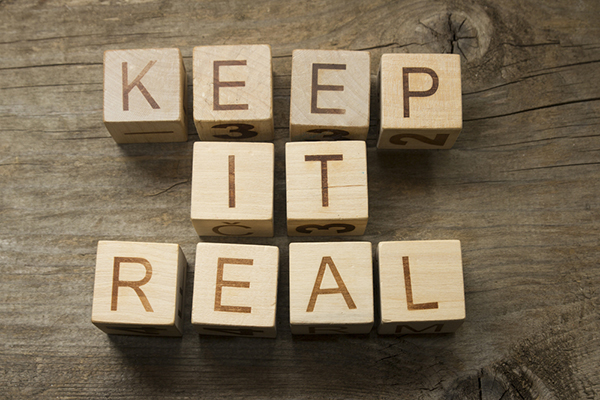
I think so. I’ll tell you what, Diane, no one will hire me. I have one of those resumes that people are like, “You want my job. That’s not happening.” I have to create these avenues. I love learning, especially with improv. A lot of my career prior to working in content distribution was in the consumer products industry. I worked for companies like Phillip Morris, Pepsi and Coors. A lot of those items were vices. I went from cigarettes to soda to beer. It’s not something that you want to show and tell at a career day at church. You have to be very strategic about how you position things. When you work in sales and marketing, you have to be quick on your feet because you could have what you thought was a one-hour meeting with the client and they’ll say, “You have ten minutes.” You have to be able to quickly encapsulate, be succinct and concise. Improv helps the brain think fast. It helps the mind and help your words form without fumbling over yourself. Those are skillsets that no matter what career path you’re in, you could benefit from.
It opens up a world of questioning. My work is in the area of curiosity. I love that, especially with the yes-and. You worked for Phillip Morris. I have never met anybody who worked in the cigarettes or that industry. They use the products and they’re no longer here. What is the corporate culture like to work in a company like that?
That was my first job out of grad school. I was finishing my MBA. You’re courted by different companies. I remember reading about the company and I thought, “It’s a controversial product. However, it’s a product for adult consumers who choose to use it.” I said to myself, “If I can market this and if I can work for the biggest, baddest and most controversial company at the time, then I could sell and market anything.” It was a choice and I took the challenge to work for this company when it was frowned upon at the time. There were a lot of lawsuits and a lot of things going on. Even though I didn’t partake in tobacco myself, I learned a lot about marketing, marketing to consumers and marketing to status quo. A lot of times when you’re selling something, you’re not only selling it to the individual who’s using it, but you’re also selling responsibility and other things to everyone else. That was one of the strongest training backgrounds I had. As I went on to other different organizations, I took that training from the difficult item to market and I learned a lot from it.
I was talking to somebody about how you can learn so much from sales. Sales help us in many ways. You later went on to associate produce that film Burden. Did you have to do a lot of sales to get that made? What was that process like?
The film industry has slowly become a passion for mine. I’ve gone to the Sundance Film Festival and a lot of other festivals. I am an advocate for helping stories get told and get exposure. There are hundreds of thousands of stories that still haven’t been told, people who still can’t see themselves on TV or in a book. As I was working on the book, one of my literary coaches was a film producer and he had a project at that time. He said, “Would you want to be a part of this?” I read the synopsis. Burden is a short film written and produced by Nathan Hale Williams.
It’s about a day in the life of this successful family man. It talks about the micro-aggressions that he goes through in a given day. We all are victims of micro-aggressions. When someone says, “Diane, you went to that college?” Those tiny little things that people say and they try to be funny with it, but they can build up and it can come to a head. The short film told an amazing story because it speaks a lot to race. The beauty of that story is it can talk about sexual orientation and disabilities. We all have these micro and macro aggressions that are put upon us. I thought it was an amazing story to be told and a complement to the brand that I’m trying to build for myself. It worked out and it was a great opportunity to be a part of that production team.
[bctt tweet=”It doesn’t matter how much you know if you can’t communicate effectively. ” via=”no”]It’s hard to tell stories for me and some people. I’ve had people who were Hall of Fame speakers and I’ve asked them, “How do you become a better storyteller?” A lot of people say, “Write down stories that come to you and make them bigger and better. You can tell your story and add a ridiculous element to it or something.” Is that a good way to do it? Give us some advice for how to be better storytellers?
I definitely think authenticity is key. You find yourself in a quicker rut when you’re trying to create something. I always start at the core and my core has to be the truth. From there, you can begin to build upon it and expound, as long as the core is real. In my book, I have a lot of people who’ve asked me, “Did that really happen to you?” I’m like, “That happened to me.” There’s a particular chapter in my book where I talk about my grandmother. She was diagnosed with Alzheimer’s when I was in college. I had to reveal something very personal to my grandmother. I revealed it to her and she loved me and accepted me. Unfortunately, about six months later, she was diagnosed with Alzheimer’s. I had to tell her again six times. It’s funny but that’s what comedy is. Storytelling is taking something that’s the truth and expounding on it. To be a successful writer or speaker, as long as you’re authentic and you have your authentic self, you can’t lose that way.
Do you think it’s harder for women to be funny than men?
I don’t. Unfortunately, throughout the hundreds of years, women have lost their voices sometimes. There’s a commercial, I believe it’s Dove or someone does a commercial and it shows women in different professional arenas apologizing all the time, “I’m sorry, can I say something? I’m sorry, I’ve been this.” Unfortunately, over time, our voice has been a little muffled. Women are very funny because a lot of things we choose not to say the voices in our heads. If that can be amplified, almost every woman in the world would be a stand-up comedian. You have to choose your battles and choose what you say to people.
That’s the problem. If you say something now, it’s out there forever. People are afraid of that because you can’t say the things that George Carlin or whatever used to say. It’s got to be very hard as a comedian.
It depends on the content as well. You do have those comedians that are a little more brazen. I purposely made sure that my stand-up is real and authentic. There are may be some things that I say that may cross over PG-13, but my entire message is not like that. That’s not my shtick per se. It’s about telling the story. Those individuals who are successful and able to do that, they’re great at it. I don’t think I’d ever want to try to play in that field.
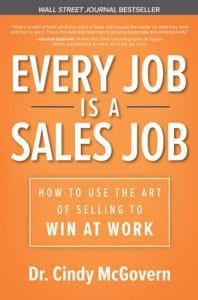
There are many people that’s starting to find that they can’t say what they used to say so they’re changing their style. I’ve seen that quite a bit. As far as women, I love Ellen DeGeneres and others. Is there anybody who inspires you as a great stand-up comedian?
It’s funny you mentioned Ellen DeGeneres. She’s a good friend of mine in my head. I love her delivery. When I go back to some of the older comics, I love Carol Burnett. Betty White is amazing to me and Wanda Sykes. There are many comedians. What I like about them is every time Ellen is talking, you feel like she’s talking to you. She’s sitting in a chair and having a conversation. It’s not really a performance. To me, that’s the best comedy to indulge in. Comedians who make it conversational are great comedians because it’s all about storytelling.
Some of the self-deprecating humor can be funny. Rodney Dangerfield at the time was funny for the time being. You don’t see that anymore as much.
I used a little bit of self-deprecation and I believe that’s in the stand-up that you saw on YouTube. It’s telling the truth, talking about my name and my grandmother. There’s so much content in the world that you can use, be it from a political perspective, culturally, even with things that are going on in our world. You talked about global warming. There’s so much material out there. You can almost not talk about yourself because that material has to be covered. I’m glad we have such a variety of comedians out there. Some who always tackle the politics, the Trevor Noah’s of the world. You have those that talk more family-oriented. That’s great because it provides a large variety to select from. Sometimes you don’t want to hear about someone talk about themselves. You want to laugh about something that you’re worried about if it’s global warming or the state of affairs. That’s the calming effect that comedy provides the world.
With your book, you were trying to get people to see parallels to being a bartender and different things. How can we learn from that and also learn to be a little funnier, lighter? Do you touch on developing the comedic aspect in the book at all? How do you get that?
The book is a lot of comedy. It’s a lot of realness. I had creative chapters because I want to draw the person in. I have one chapter called Stop Losing Wait. It’s about stop losing patience or stop trying to be impatient. After each chapter, I have a cocktail recipe. The cocktail recipe for stop losing wait is called slender bender. It’s just a skinny margarita. It’s a play on words. It has a funny title. I dig deep into how those in the hospitality industry deal with it, how we can deal with it in our professional and personal lives. I give you a free cocktail recipe at the end. That’s the pattern of the book. I have a chapter called You Have to Know When to Cut People Off. That’s very true for bartenders. I used to be a bartender.
[bctt tweet=”If the voices in your head can be amplified, every woman in the world will be a comedian. ” via=”no”]You have to have that uncomfortable conversation when you can tell someone is being annoying or a danger to themselves. You have to do the same in your personal life. You have a friend, cousin or a co-worker that are being annoying. They’re starting to be a danger to others. You have to have that conversation to cut them off. From that chapter, the cocktail recipe is called I mint what I mint. It’s a beautiful cucumber, basil smash cocktail. It’s a funny book and there’s a comical illustration. It takes you back and forth. In every chapter, you see how it relates to your personal life and how you can use this in the corporate world. Think about how those in the hospitality industry have had to deal with it as well.
You were doing all this where you’re staying up late at night, you’re writing a book and you’re getting up before 7:00 to go to work. Are you still burning the candle at both ends doing all these things and what’s next?
Yes, I’m burning the candle at both ends. There’s more light that way. I have two points of light. There was a quote that said, “Doing what you like is freedom but liking what you do is happiness.” Once you find something that you’re passionate about, it doesn’t feel like work. Every morning when I wake up, when I’m taking the bus or the subway into the city or something, I’m on my phone and I’m looking at reviews from my book. I’m looking at sales reports. I’m trying to think what type of social media campaign am I going to put out to support the book. All those things are attached to what I know and what I do. Next is much of the same. I do have a podcast of the same name. It’s called Think Like a Bartender. We interview bartenders and lifetenders.
I call people who are not a bartender a lifetender because we all stand at the bar of our lives. It’s interesting to get the perspective of some of these bartenders from around the country as they talk about, “I can tell you story about well versus premium, how you have a well spirit and a premium spirit. In your life, you have your well friends and you have your premium friends.” We mashed those concepts up and it’s funny. Continuing the podcast and the book, we started with a tour. I had a book launch event in New York, Los Angeles and New Jersey. We’re going to pick that up and hit some areas like Texas, Colorado and a couple of other places where we have some big demand for the book. I want to continue pushing that brand out there, pushing the message and having people become better mixologists in their lives.
I love the parallels and all the information that you shared. I thought you’re funny. People can find you on YouTube. Where would you like for them to reach you if they wanted you to speak or get your book or work with you?
Fortunately, we have a lot of platforms. We have the website which is ThinkLikeABartender.com where you can take a look at the book trailer. I produced and wrote a book trailer like how movies have trailers. I have a trailer for the book which is funny. You can get more information about why I wrote the book and also where you can purchase it. The book is available on Amazon.com. If you’re into the audiobook, it’s available on Audible.com. Thankfully, we also have distribution at Barnes & Noble, Walmart and Target as well. On Instagram, @Think Like A Bartender. On Facebook, Think Like A Bartender. I kept that same thing going. Through any of those mediums, I can be contacted and you can see what I’m doing with the book and different types of extensions. We’re going to do a couple of pop-ups at bars and lounges where I’m going to be behind the bar speaking about a couple of chapters in the book. There’s a little bit of stand-up, but I’m also making a couple of drinks. It’s going to be a one-woman show reading/tasting of cocktails. People will like that.
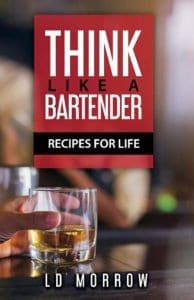
I think your bit is going to be funnier as the night goes on too if you’re back there.
The more you drink, I guarantee I will be funnier. It’s a win-win for me.
What you’re doing is interesting, L.D. It was so nice to have you on the show. Thank you for being a guest.
Thank you so much for inviting me. I had a blast.
It was fun and you’re welcome.
—
I’d like to thank both Dr. Cindy and L.D. for being my guests on the show. This was so much fun. I hope you enjoyed this episode.
Important Links:
- Dr. Cindy McGovern
- Every Job is a Sales Job: How to Use the Art of Selling to Win at Work
- Orange Leaf Consulting
- DrCindy.com
- L.D. Morrow
- Think Like A Bartender: Recipes For Life
- Lolita
Think Like a Bartender – podcast - Caroline’s – Lolita’s performance
- YouTube – Lolita Morrow
- ThinkLikeABartender.com
- Amazon.com – Think Like A Bartender
- Audible.com – Think Like A Bartender
- Think Like A Bartender – Instagram
- Think Like A Bartender – Facebook
About Dr. Cindy McGovern
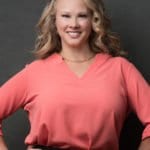 Known far and wide as “Dr. Cindy,” the First Lady of Sales, Dr. Cindy McGovern is an expert in the areas of sales, interpersonal communication, leadership, and management. She has earned her reputation by helping literally hundreds of companies to grow their business.She is the author of the Wall Street Journal Best Seller, Every Job is a Sales Job: How to Use the Art of Selling to Win at Work, and as a popular and inspiring speaker, Dr. Cindy has presented at national and international conferences on a wide variety of sales, leadership and motivational topics. As the CEO of Orange Leaf Consulting, she has coached and guided companies and individuals to achieve professional success and sustainable revenue growth.
Known far and wide as “Dr. Cindy,” the First Lady of Sales, Dr. Cindy McGovern is an expert in the areas of sales, interpersonal communication, leadership, and management. She has earned her reputation by helping literally hundreds of companies to grow their business.She is the author of the Wall Street Journal Best Seller, Every Job is a Sales Job: How to Use the Art of Selling to Win at Work, and as a popular and inspiring speaker, Dr. Cindy has presented at national and international conferences on a wide variety of sales, leadership and motivational topics. As the CEO of Orange Leaf Consulting, she has coached and guided companies and individuals to achieve professional success and sustainable revenue growth.
About L.D. Morrow
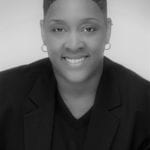 Author, comedian and producer, L.D. Morrow is one of the industry’s most talented and dedicated advocates for diversity in content distribution and storytelling. A multi-faceted leader, this Harlem resident has over 20 years’ experience in various sales and marketing roles from Fortune 500 companies. She is the author of Think Like a Bartender: Recipes for Life.
Author, comedian and producer, L.D. Morrow is one of the industry’s most talented and dedicated advocates for diversity in content distribution and storytelling. A multi-faceted leader, this Harlem resident has over 20 years’ experience in various sales and marketing roles from Fortune 500 companies. She is the author of Think Like a Bartender: Recipes for Life.
Love the show? Subscribe, rate, review, and share!